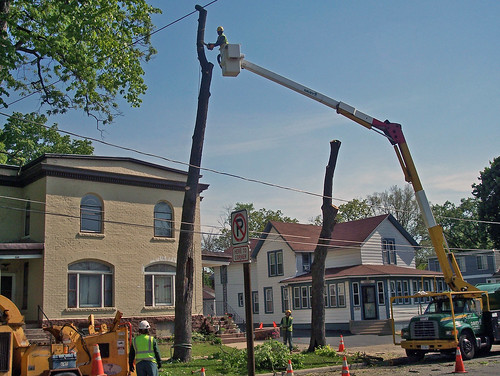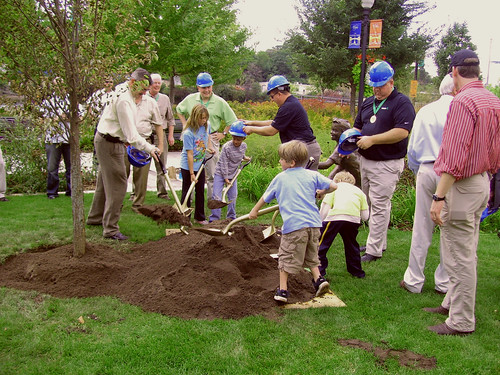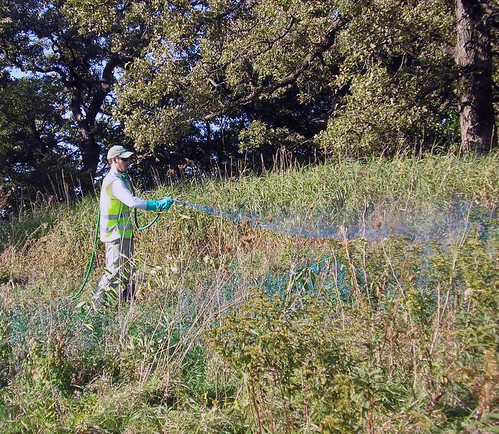
In Illinois, the city of Elgin has completed a U.S. Forest Service Recovery Act-funded urban forestry project that channeled over one million dollars into the local economy.
Working with businesses such as tree service firms, nurseries, landscapers, hotels, restaurants, graphic designers, and printers, the city engaged in a successful 18-month public-private partnership effort.

Using the premise that a sustainable community forestry program requires a combination of organized leadership; comprehensive tree population information; dedicated personnel and contractors; effective public education; and the support of residents and businesses, the city used Recovery Act funds to build firm foundations in these areas through a many projects.
For example, municipal workers helped produce geographical information system-based maps and statistical data for future planning and canopy cover monitoring.

Extensive ash tree mortality has occurred across the eastern U.S. because of the emerald ash borer, an invasive insect. Ash trees, which can grow to be 60 feet in height, become very brittle after being attacked. In Elgin, trees at risk from the bug were removed and healthy ash trees were treated to discourage further spread of the insect. Contractors and city crews planted more than 1,100 trees as replacements.
The city used some of the funds to develop and market an urban forestry awareness publicity campaign. It also investigated insect and disease threats to its forests and has made plans for minimizing damage along with implementing a newly developed plan to efficiently utilize or dispose of wood waste.
In addition to supporting the economy, the project has done much to contribute to Elgin’s long-term beauty.

